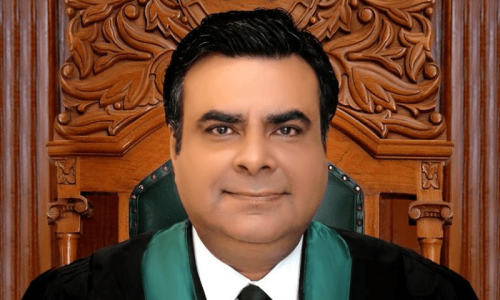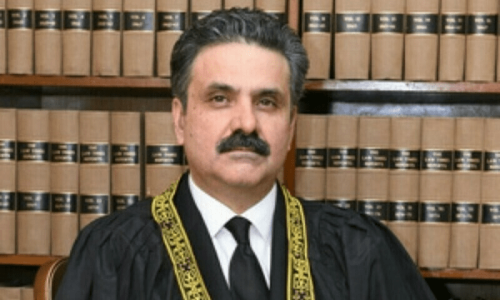HYDERABAD, Nov 9: Councillors and NGO activists said at a seminar here on Sunday that council members were never consulted about preparation of budget and were always asked to pass the document prepared by municipal officers and secretaries.
The seminar on “Budget allocations in local government for marginalised sections of society” was organised by the South Asia Partnership in collaboration with We Journalists at a hotel. The speakers said that budget was passed every year without any input from councillors and nazims.
Qazi Basheer, former director of local government, said that he had observed in the course of his service that officers were in the habit of just modifying the budget of outgoing fiscal year to prepare a new budget.
He called for budgets that should be rights-based and poor-friendly and said that British rulers were people-friendly because they used to take feedback from local population before allocating funds.
Majority of speakers including councillors and NGOs’ activists who were working in local bodies sector were of consensus opinion that local bodies’ members were not consulted in preparation of budgets.
They hit out at parliamentarians and said that they had no vision to improve the lot of their electorates.
Sarwar Abbasi, a councillor from Larkana, said that councillors did not have any say in local government affairs. Funds meant for union councils often found their way to meeting fuel expenses of nazims and paying salaries of staff, he said, adding that even Nisar Khuhro, MPA from his area, did not visit his constituency.
Javed Bhatti, an NGO activist from Badin, said that they normally came to know about passing of district government’s budget through newspapers. Taluka municipal officers and union councils’ secretaries prepared budget after mutual consultation, he said.
He said that funds out of monthly grant for UCs should be utilised for carrying out development works in the area.
Dr Rubi Dharam Das, a member of Umerkot district council, said that members were handed stacks of budget documents in which they had zero input. “We normally pass ready-made budgets because influence is always there,” she said.
Ali Hassan Mahar of Village Development Organisation Ghotki said that the first round of LB polls were considered as exercise and there was hope that in the second round things would start improving but unfortunately situation had only worsened.
He criticised even parliamentarians for their lack of vision. “Around Rs500,000 were spent Sindh chief minister’s visit to Ghotki but what our MPA demanded of him was that a hospital should be named after Shaheed Benazir Bhutto. He didn’t ask the chief executive to give equipment to the hospital, upgrade it or ensure availability of doctors,” he said.
SAP coordinator Zulfikar Shah dilated on the question of provincial autonomy without which, he believed, conditions could not improve at grass-root level.
Sindh had a surplus of Rs4 million but then onwards it was having a deficit budget. Only three per cent and seven per cent improvement had been witnessed in road and sewerage sector during last eight years which was not appreciable.
He called for activating 268 monitoring committees and decentralisation of political structure with an effective bureaucracy and supported women’s representation in the system.
Yamin Memon, PhD in development sector, said that present LB system had been borrowed from the developed countries where it had been working successfully.
Actually, political will was required to make the system workable with proper monitoring, he stressed.
Jaffar Memon of We Journalists, Ghaffar Malik, Iqbal Mallah and Nazeer Qureshi also spoke at the seminar.















































Dear visitor, the comments section is undergoing an overhaul and will return soon.